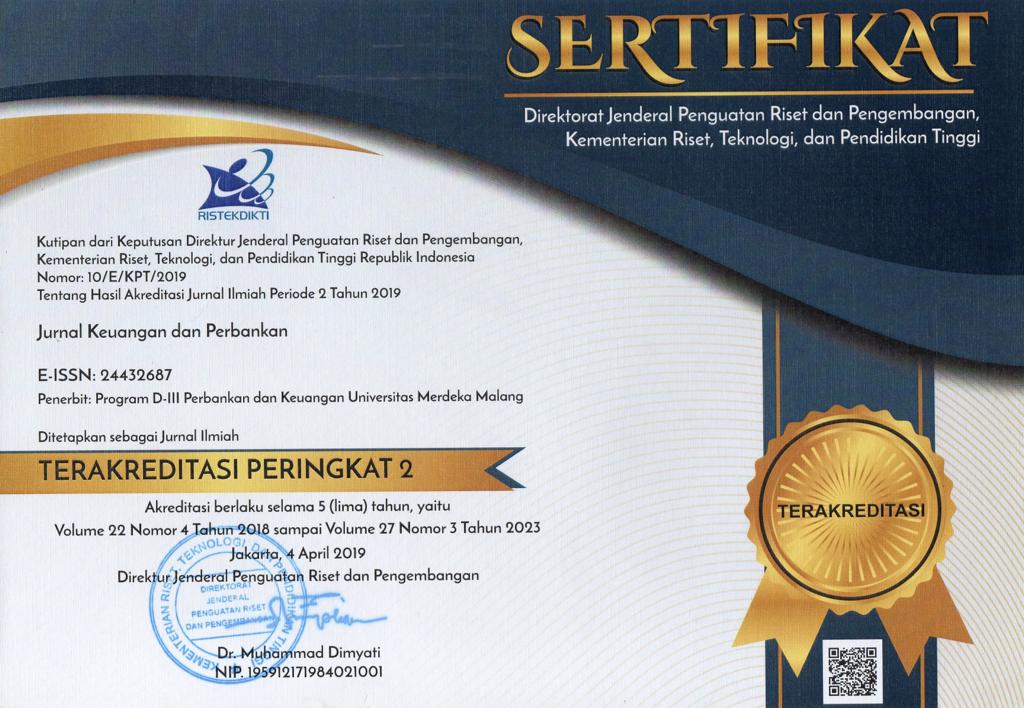EFISIENSI PASAR MODAL SYARIAH INDONESIA SEBELUM DAN SESUDAH KRISIS FINANSIAL GLOBAL 2008
Abstract
Efficient markets could be classified into three forms: weak, semistrong, and strong. Weak-form efficiency suggestedthat security prices reflected all trade-related information, such as historical security price movements andvolume of securities trades, so they did not relate to current price and volume. In other words historical pricemovements was independent or random over time. Thus, test of weak-form efficiency related to random walktheory. This research had two objectives. The first objective was to analyze whether Indonesian capital market wasefficient (weak-form). The second one was to analyze increasing efficient market in two different periods. Thestudy was carried out on the 6 stocks in the Jakarta Islamic Indexs (JII), based on before, while, and after globalfinancial crisis 2008. The first objective was analyzed by using run test. The result showed that most stocks wererandom in three (before, while, and after) different periods. The second one was analyzed by searching number ofstocks that were random in the three periods. The result showed there was decreasing weak-form efficiency intheperiod before and while crisis and increasing in the period before and after global financial crisis 2008.
Keywords
weak-form efficiency, random, stock price, sharia, global financial crisis
Full Text:
pdfDOI: https://doi.org/10.26905/jkdp.v16i1.1047
Refbacks
- There are currently no refbacks.
Jurnal Keuangan dan Perbankan (Journal of Finance and Banking)
Diploma Program of Banking and Finance, Faculty of Economics and Business, University of Merdeka Malang
Published by University of Merdeka Malang
Mailing Address:
2nd floor Finance and Banking Building, Jl. Terusan Raya Dieng No. 57 Malang, East Java, Indonesia
Phone: +62 813-3180-1534
Email: jkp@unmer.ac.id
 This work is licensed under a Creative
This work is licensed under a Creative
Commons Attribution-ShareAlike 4.0




